Editor’s Note: New York City has long been an evolving patchwork of voices, with populations from all over the globe settling and resettling neighborhoods, shifting the identity of each area and the metropolis as a whole. Although the streets around them have changed drastically over the decades, in the East Village, there are still businesses that are evidence of early waves of residents, their cultures and customs—in particular, those of Eastern European descent. We spoke with the leaders of two of these institutions: Andrew Ilnicki of East Village Meat Market, who was born in Poland and raised by a Ukrainian father, and has been managing the East Village Meat Market since 1980; while Tom Birchard of Veselka was raised in Pennsylvania and assumed operations at the restaurant in 1975 from his father-in-law, Ukrainian-born Wlodymyr Darmochwal. In their own words, these stories provide context to the evolution of immigrant culture, the importance of food, and of gathering spots like theirs to the East Village community, past, present and future.
Andrew Ilnicki
Store Manager, East Village Meat Market
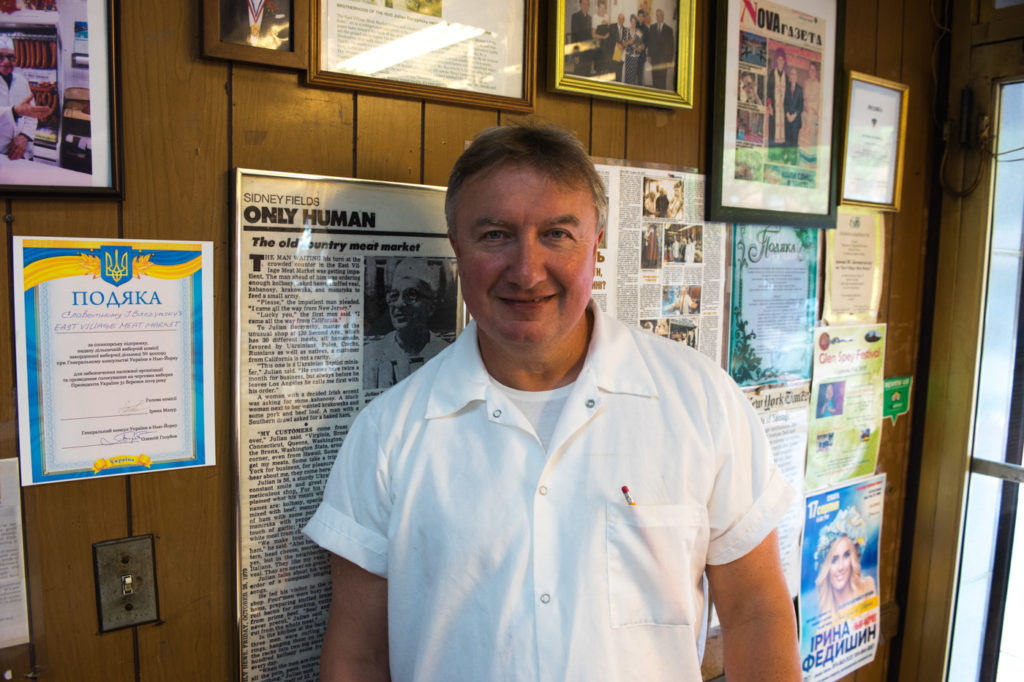
“Immigrants [came] after World War II. 250,000 Ukrainians and Poles mixed together, and they created a strong neighborhood. That’s why they had a chance to build the churches, the banks, the restaurants, the schools.”
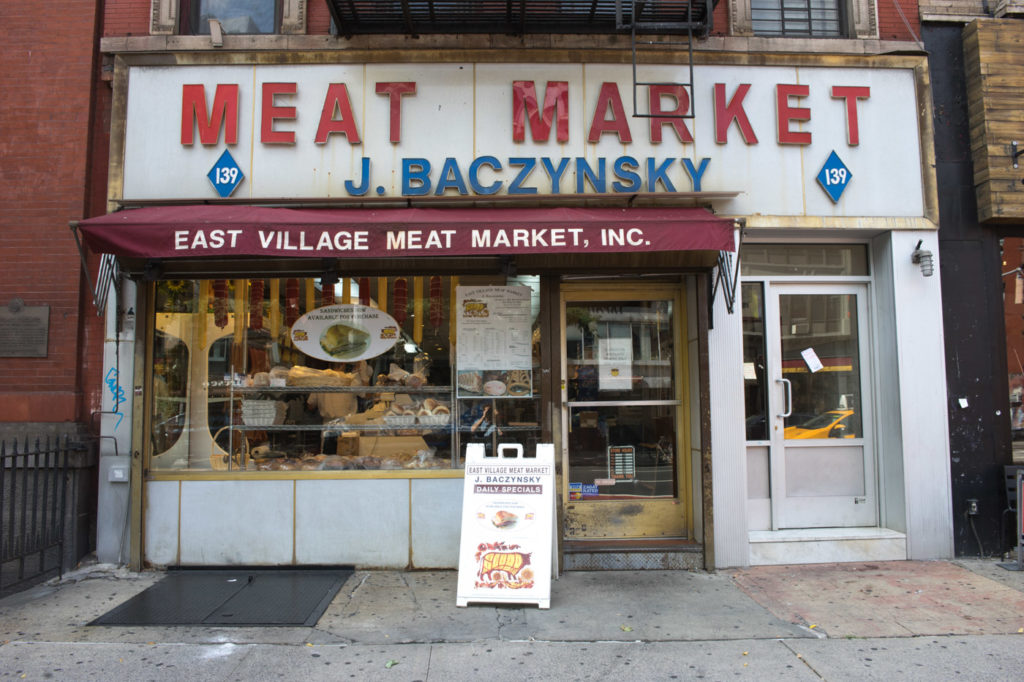

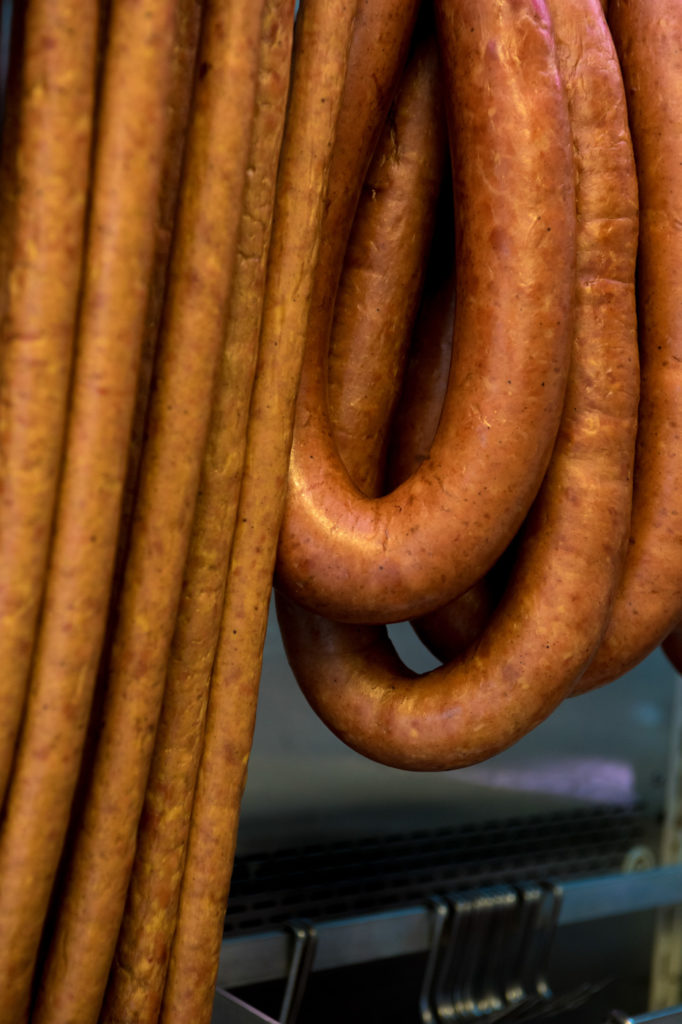
“The rents changed the neighborhood; nobody could afford it, the immigrants especially. If you come to America, you’re not going to spend money. You come here to earn money at first. And the first thing: you have to send money home—to help the parents, the sisters, whatever’s left—and then you start thinking about yourself.”
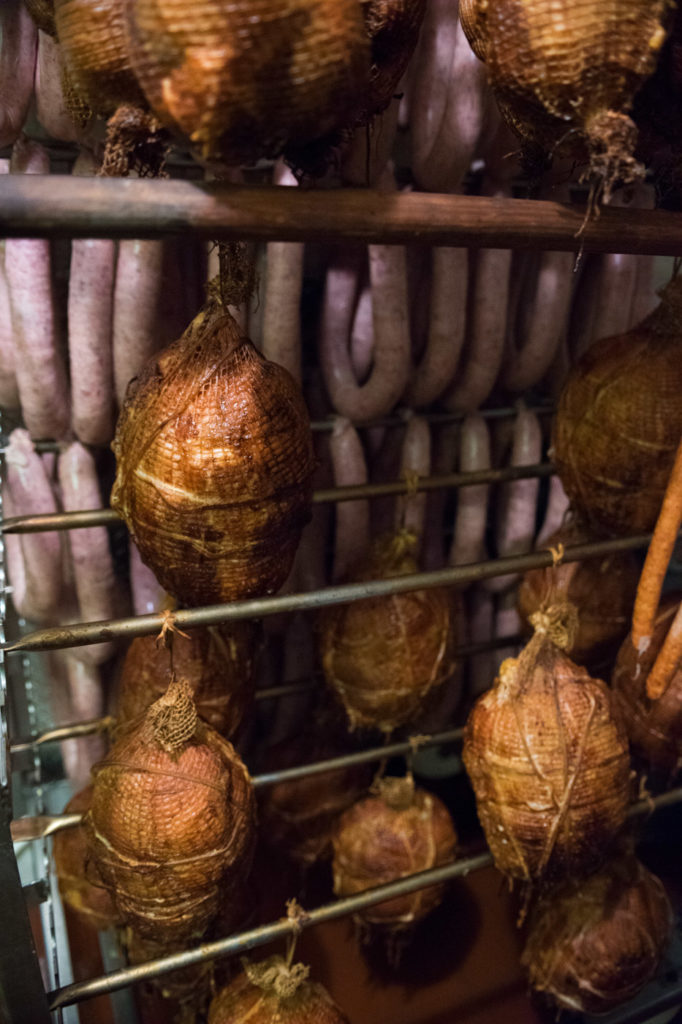
“When the economy is doing horribly, the store does a little bit better. If people have money, they go out. If the economy is poor, they come here and buy the foods they cook at home. But the amount of money you spent in the restaurant, you could buy enough meat here to [last] your whole week.”
“I came here when I was seventeen or eighteen. Whatever you see on the news, I am always against it—those [kinds of] politics—because I was an immigrant. If you see the guy or the lady coming [to the United States], they are immigrants looking for help, because without other people, they cannot make it. So I do help them a lot. They have to find a place to stay. They have to find a place to work. They have to find the food.”
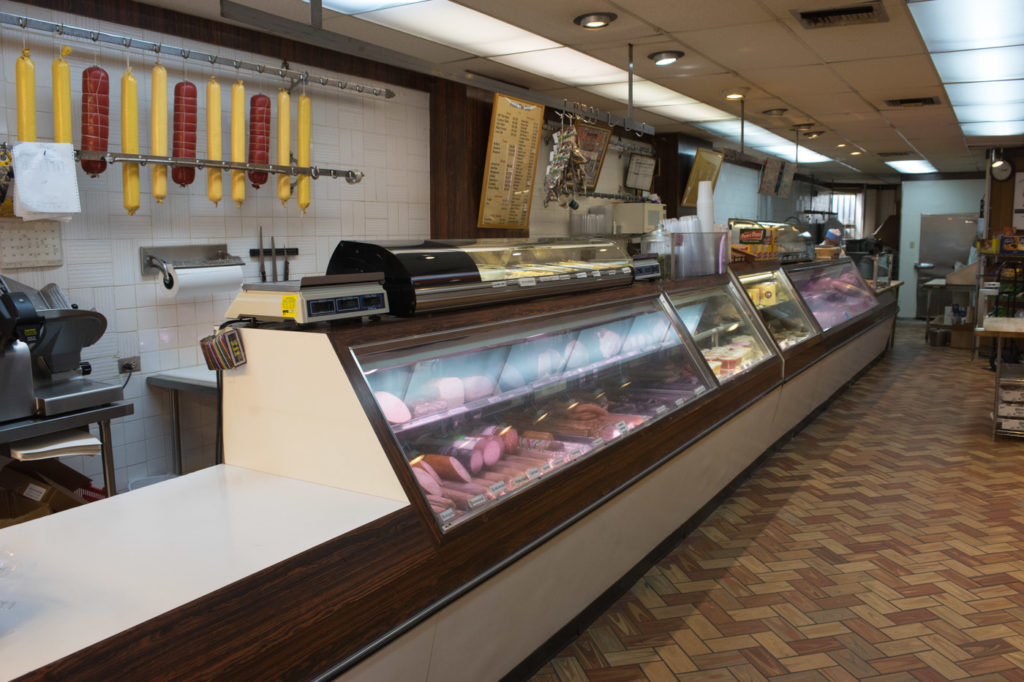
Tom Birchard
Owner, Veselka
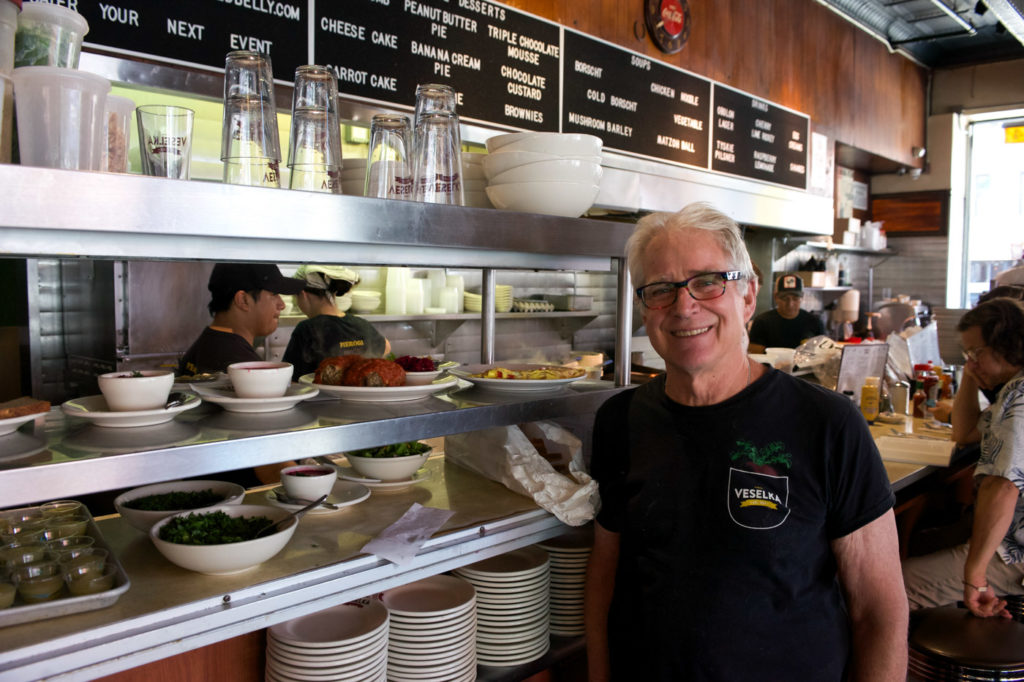
“There was Ukrainian immigration, there were institutions here already. It really mushroomed in the fifties. This is what my father-in-law and other people around the neighborhood have been taking pains to educate me on.”
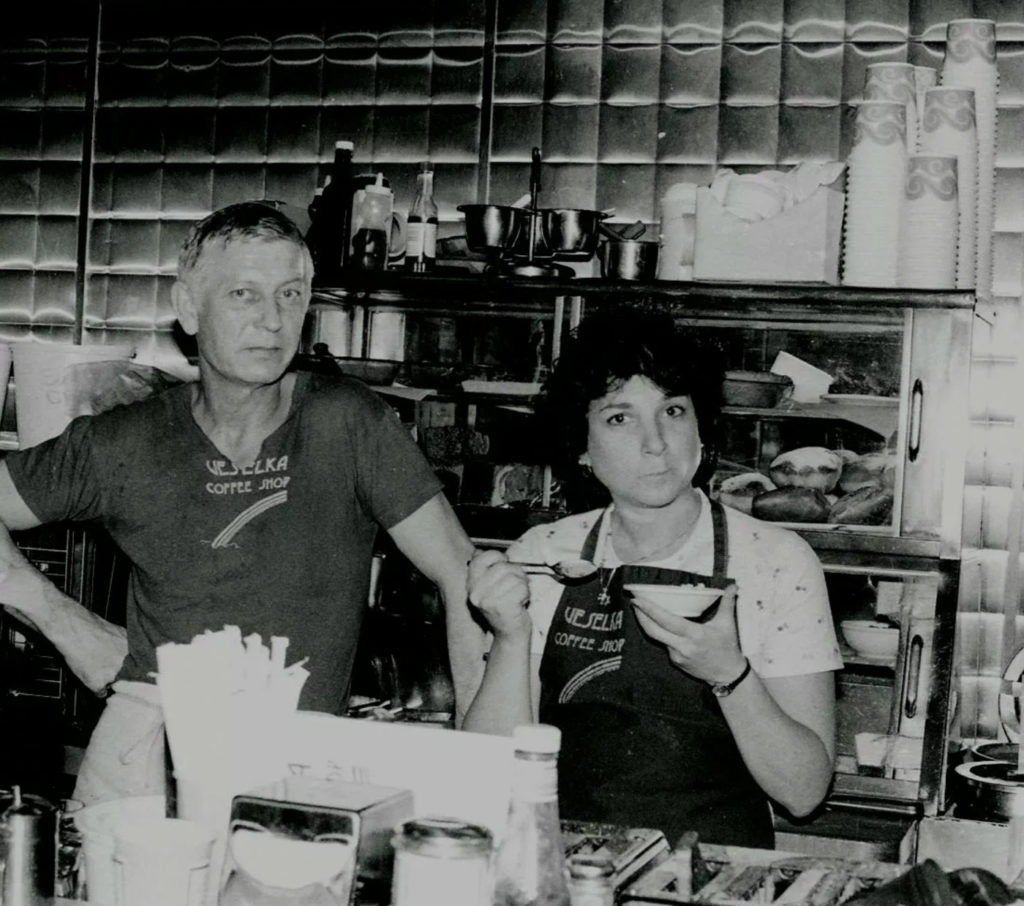
“I didn’t realize for a while that there were two languages being spoken interchangeably—Polish and Ukrainian. And actually most of the employees here were Polish because there was not any fresh immigration of Ukrainians. There were Poles coming over to work.”
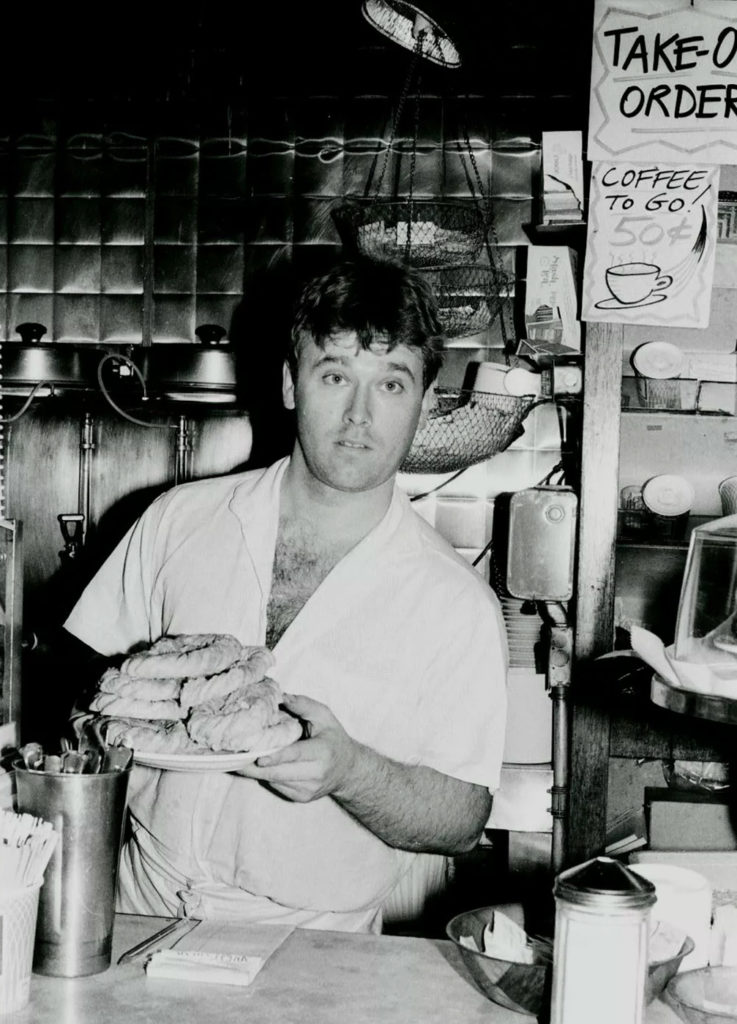
“The Ukrainians that were in this neighborhood were more professional people and had jobs in banks [or were] engineers. And the Polish people who were around here were looking to work for a couple of years and save money and [leave].”
“The people who were here were really fighting, struggling to keep their culture alive. Their mission was to maintain their culture, their friendship, their history, and to many of them their dream was for a free, independent Ukraine.”
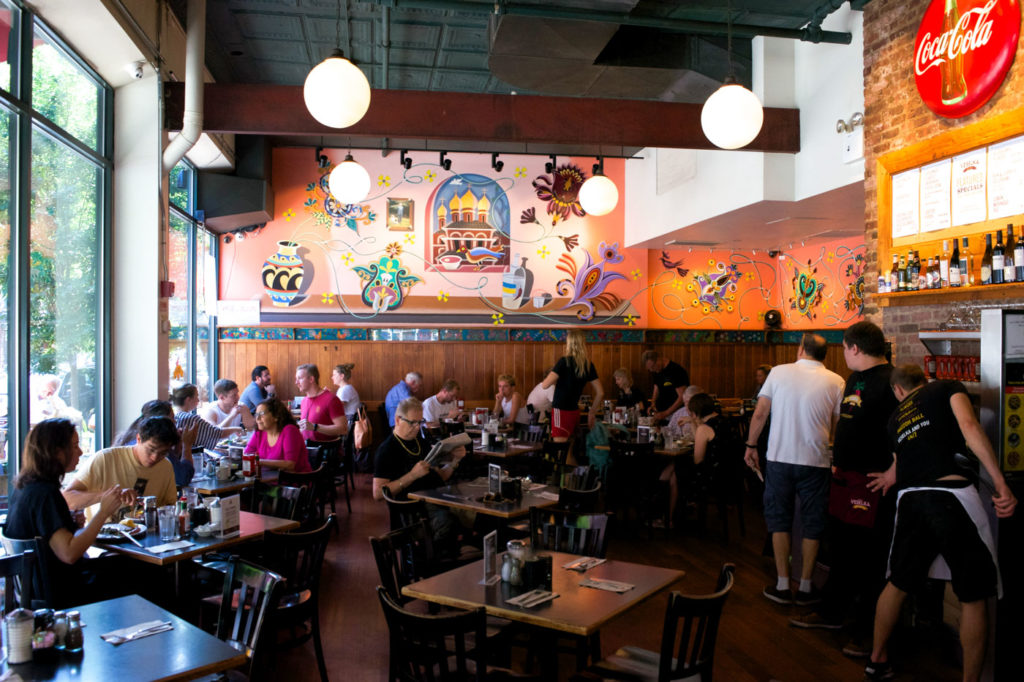
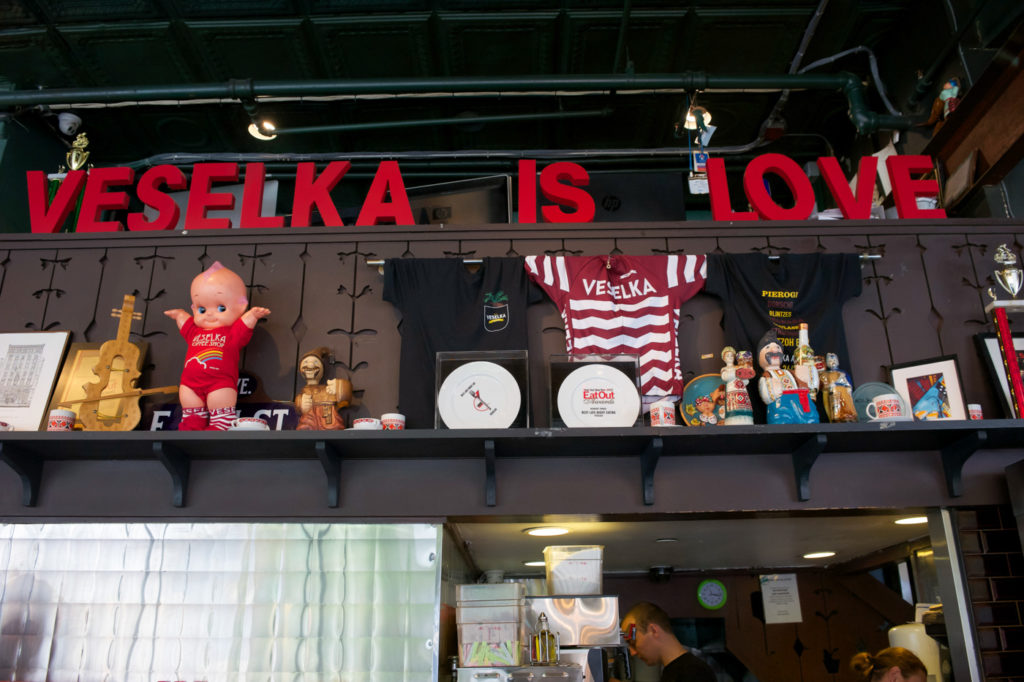
“When I first came here, it was a gathering spot for Ukies, and the neighborhood was a pretty concentrated, large, vibrant community here. Some Ukrainians had the foresight to buy property. But over time that dwindled; those people started passing away. And a lot of them moved to the suburbs.”
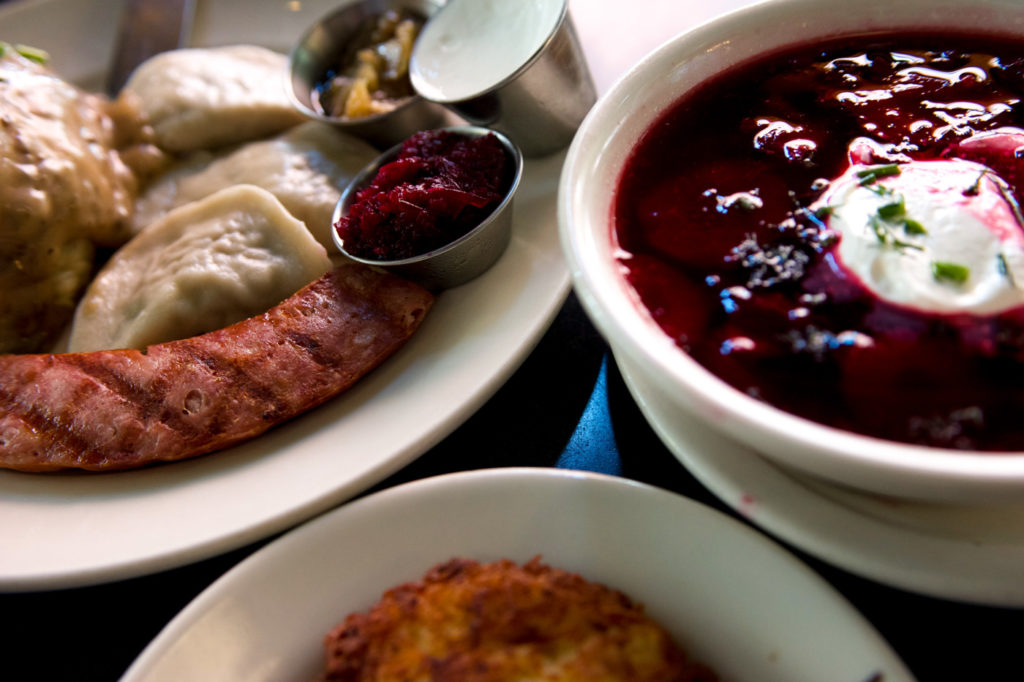
“We always had good borscht; we had pierogies. In the leanest, worst times, there were a few elderly Ukrainian men who came here and ate cabbage soup, stroganoff or pierogies. That helped us keep that [custom] going.”
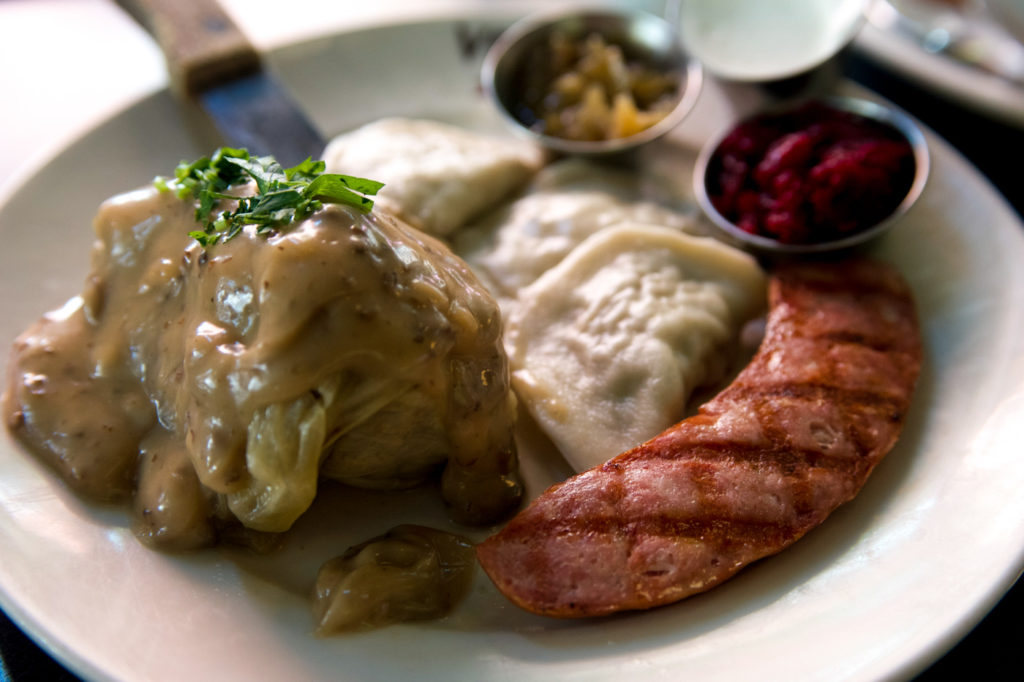
“It took me a while to realize what a big audience there was out there for ethnic Ukrainian food—Eastern European food. I thought the key to success in those early days when I was struggling was by following more of the like coffee shop, like a burger and tuna fish, and we had all that and it was good. But when we started getting written up and saw what people were ordering and what the writers were writing about—they were writing about the Ukie stuff.”





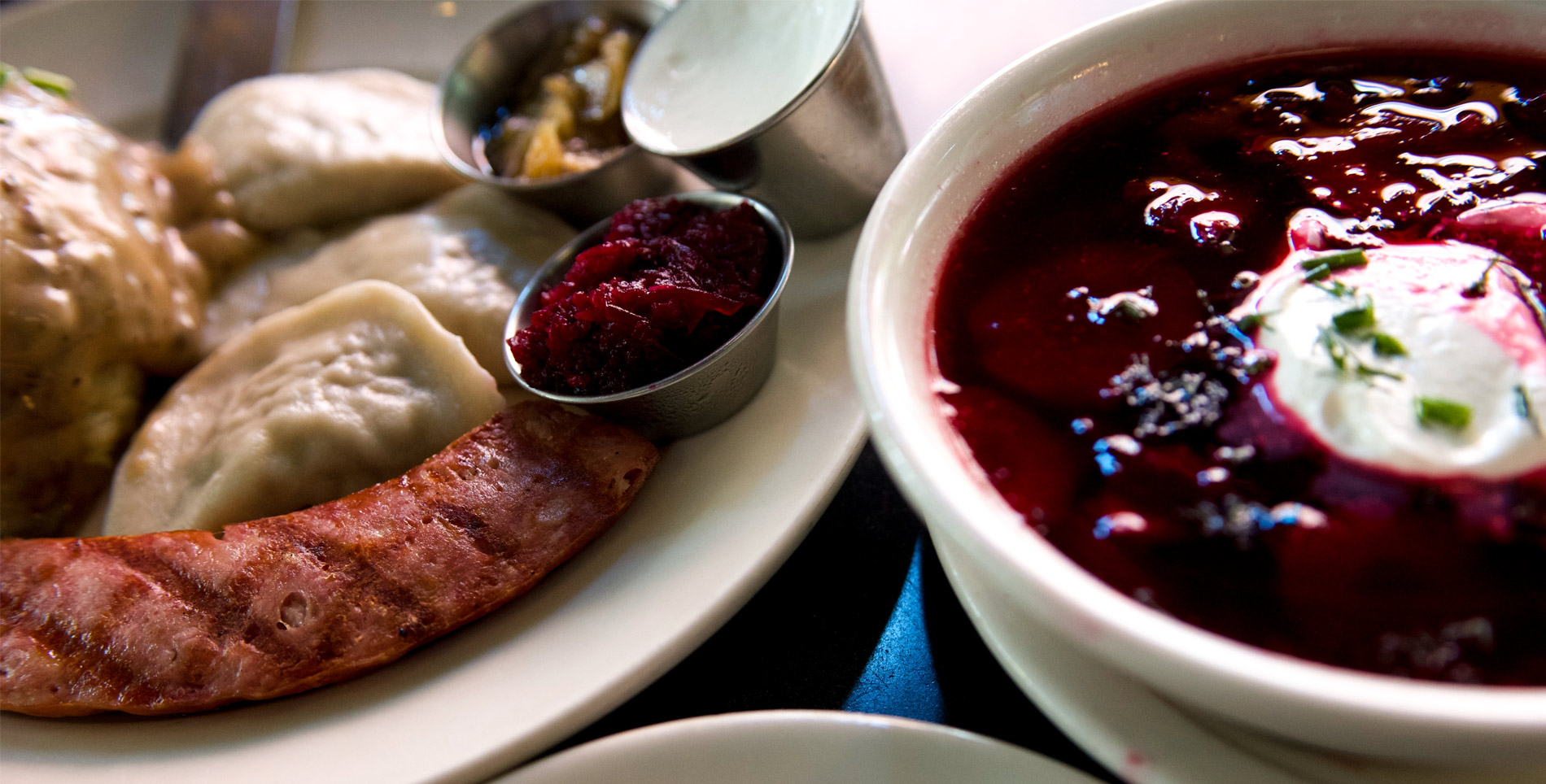

Our comments section is for members only.
Join today to gain exclusive access.